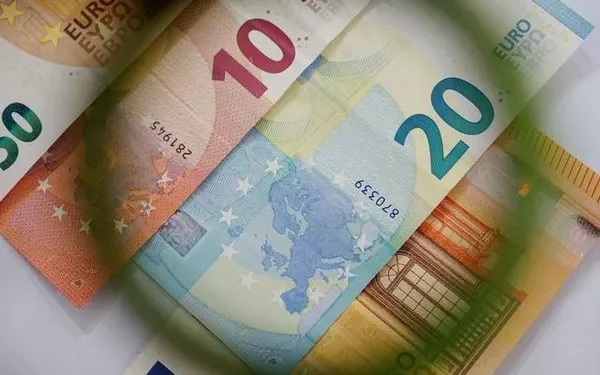The performance of the Euro (EUR) in the foreign exchange market has always been a topic of keen interest for investors, traders, and businesses engaged in international trade. As we navigate the complexities of the global economy, the question that looms large is, “Will Euro go up?” In this article, we will delve into the factors influencing the Euro’s value and attempt to provide insights into its potential trajectory.
Global Economic Factors and the Euro
When assessing whether the Euro will go up or down, it’s crucial to consider the broader economic context. Global economic factors play a significant role in determining the Euro’s performance in the foreign exchange market. These factors include economic growth, inflation rates, and monetary policies of major economies such as the United States, China, and the European Union itself.
One of the primary factors that will influence the Euro’s direction is the economic recovery post-COVID-19. As economies around the world bounce back from the pandemic-induced recession, there is an expectation that this could have a positive impact on the Euro. As economies grow, they tend to import more goods and services, potentially increasing demand for the Euro, thus leading to an upward trajectory.
Monetary Policy and Interest Rates
Monetary policy, especially interest rates, is a critical determinant of a currency’s strength. Central banks use interest rates to control inflation and stimulate or cool down economic activity. Therefore, when contemplating whether the Euro will go up, one must consider the European Central Bank‘s (ECB) monetary policies.
The ECB’s decision to maintain or adjust interest rates can significantly impact the Euro’s value. If the ECB decides to raise interest rates, the Euro could become more attractive to investors seeking higher yields, potentially driving its value up. Conversely, if the ECB keeps rates low or adopts an accommodative stance, the Euro may face downward pressure.
Inflation and the Euro’s Purchasing Power
Inflation, the rate at which prices for goods and services rise, has a direct impact on a currency’s purchasing power. A high inflation rate can erode the value of a currency, making it less attractive to investors and causing it to depreciate. When considering whether the Euro will go up, it’s essential to monitor the Eurozone’s inflation rate.
The Eurozone has experienced relatively low inflation in recent years. The ECB aims to maintain inflation below, but close to, 2%. If inflation remains subdued and well within the ECB’s target range, it could contribute to a stable Euro and potentially support an upward trajectory.
Geopolitical Uncertainties and their Impact
Geopolitical events can have a significant impact on currency markets. Any uncertainty or instability in the Eurozone or other major economies can lead to fluctuations in the Euro’s value. Events such as Brexit, trade tensions, or political crises can create volatility and affect investor confidence.
To gauge whether the Euro will go up, it is essential to monitor geopolitical developments closely. A stable political and economic environment in the Eurozone is generally conducive to a stronger Euro, while uncertainty can lead to depreciation.
Trade Balance and Current Account
A country’s trade balance and current account position can also influence its currency’s value. The Eurozone’s trade surplus or deficit with its major trading partners, including the United States and China, can impact the Euro’s performance. A trade surplus, where the Eurozone exports more than it imports, can create demand for the Euro, potentially driving its value up.
Conversely, a trade deficit could put downward pressure on the Euro. If the Eurozone imports more than it exports, it may lead to a surplus of other currencies in international markets, reducing the Euro’s attractiveness.
Investor Sentiment and Speculation
Investor sentiment and speculative activities in the foreign exchange market can have short-term effects on the Euro’s value. Traders and investors often base their decisions on market sentiment, economic data releases, and technical analysis.
When asking whether the Euro will go up, it’s essential to recognize that short-term fluctuations can occur due to speculative trading.
Market sentiment can shift rapidly in response to news and events, leading to sudden movements in the Euro’s value. However, long-term trends are more likely to be influenced by fundamental factors such as economic indicators and monetary policy.
Conclusion: Will Euro Go Up?
In the world of foreign exchange, predicting the future movement of currencies like the Euro is a challenging endeavor. The Euro’s performance is influenced by a complex interplay of economic, monetary, geopolitical, and market sentiment factors.
While we cannot make definitive predictions, it is evident that several key factors will influence whether the Euro goes up in the coming months and years. These factors include global economic recovery, monetary policy decisions by the ECB, inflation rates, geopolitical events, trade balances, and investor sentiment.
Investors, businesses, and traders must stay informed about these factors and monitor developments in the Eurozone and the broader global economy. Diversification and risk management strategies are essential in navigating the uncertainties of the foreign exchange market.
Ultimately, whether the Euro goes up or down will depend on a combination of these factors and the interplay between them. Keeping a watchful eye on economic indicators and staying informed about market trends will be crucial for those seeking to make informed decisions regarding the Euro’s future direction.
Related Topics:
Explaining the Euro’s Decline: Unraveling the Factors Behind the Weakening Euro
Where to Exchange USD to Euro: A Quick Guide
Why Does Denmark Not Use the Euro




























